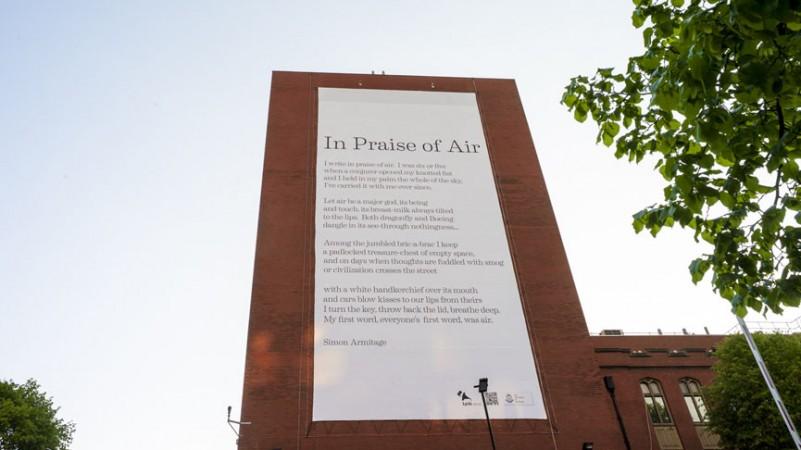
UK researchers have created the world's first air-cleansing poem that is printed on a material, which has the capability to eradicate air pollution caused by 20 cars on a daily basis.
The 10m x 20m piece of material developed by University of Sheffield, eradicates harmful nitrogen oxide from the atmosphere by soaking it up.
Simon Armitage, noted poet and professor of poetry at the University along with Tony Ryan, pro-vice chancellor for science developed a poem named 'In Praise of Air', which is printed on the material.
The technology is cheap and can be applied to advertisements and billboards beside polluted roads to cut down pollution, said the researchers in a news release.
The material is coated with microscopic pollution-eating particles of titanium dioxide that utilizes oxygen and sunlight to react with pollutants like nitrogen oxide and help purify the air.
"This is a fun collaboration between science and the arts to highlight a very serious issue of poor air quality in our towns and cities. The science behind this is an additive which delivers a real environmental benefit that could actually help cut disease and save lives." said Ryan.
If every flag, banner or advertising poster in the country followed the idea, the country would have better air quality. It would also add less than £100 to the cost of a poster that would turn advertisements into a catalyst in many ways. The posters of the large number of sites that sell cars beside the roads could use the idea and help clean up emissions at the same time, suggested Ryan.
The poem will be on display for a year at the Alfred Denny Building of the University at Western Bank.
"I wanted to write a poem that was approachable, that might catch the attention of the passer-by and the wandering mind, and one that had some local relevance too. But I also hope it's robust and intricate enough to sustain deeper enquiries – the School of English looks towards it for one thing, and I'd like to think it's capable of getting the thumbs up or at least a nod from their direction, and from the big-brained students walking up and down Western Bank, and from discerning residents in the neighbourhood." said Simon, the award winning writer.










